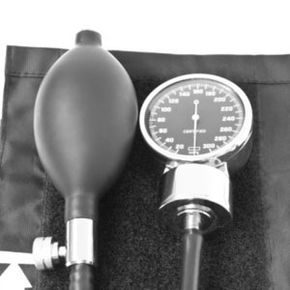What is high blood pressure?
- What it is. High blood pressure occurs when small blood vessels in the body narrow. The narrowed path causes the blood to exert too much pressure against the vessel walls. This makes the heart work harder. Over time, high blood pressure can enlarge and damage the heart. Having high blood pressure increases your risk for developing heart disease, stroke, kidney disease, vision loss, and other serious health problems.
- How it's diagnosed. The only way to know if you have high blood pressure is to get your blood pressure checked. Your doctor or healthcare provider will measure your blood pressure using a blood pressure monitor called a sphygmomanometer. This is a painless test.
- How it's treated. If you have high blood pressure, you may need to make changes to your lifestyle as part of your treatment. These can include any of the following that may apply to you: losing weight, eating a healthier diet, limiting alcohol, quitting smoking, and exercising regularly. Your doctor may also prescribe medicines to help lower your blood pressure.
Your heart pumps blood though blood vessels to all parts of your body. Your blood pressure is the force your blood exerts against the walls of your blood vessels. The pressure depends on how forcefully your heart pumps and how wide or relaxed your blood vessels are. The more narrow your vessels are, the higher the blood pressure is inside them. The higher your blood pressure, the harder your heart has to work to pump your blood.
Advertisement
Blood pressure goes up and down naturally throughout the day. When you're relaxed or sleeping, your blood pressure goes down. When you're active or exercising, your blood pressure rises. On average, during most of your waking hours, your blood pressure stays about the same. When it goes up to a certain level and stays up, you have high blood pressure or what doctors call hypertension.
To lower your blood pressure and reduce your risk for serious health problems, you need to understand what high blood pressure is, how doctors diagnose and treat it, and what steps you might take to prevent it. You've come to the right place to get answers to the questions that you have about high blood pressure.
Advertisement


